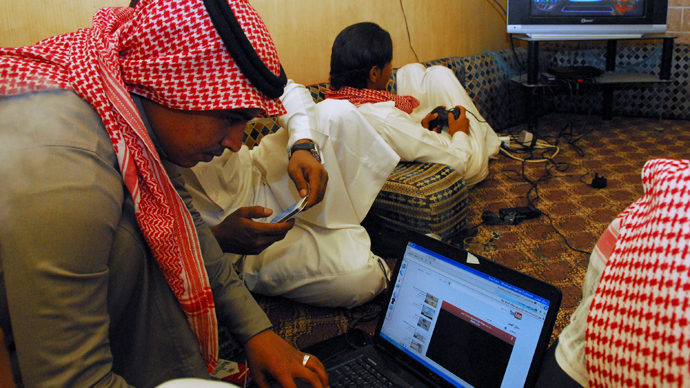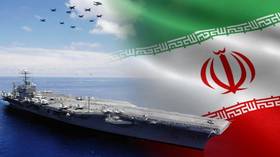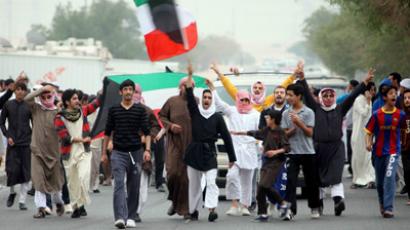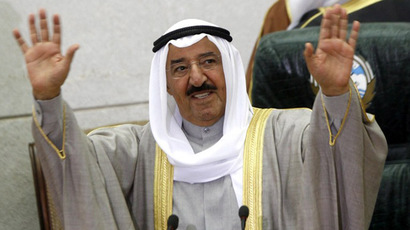HRW slams Saudi Arabia after 7 jailed for ‘inciting protests’ on Facebook

Human Rights Watch has slated Saudi Arabia for violating international human rights obligations after it jailed seven people for up to 10 years for ‘inciting protests’ via Facebook. The indicted denied charges and said they were tortured into confession.
The sentencing after a two-month long trial took place on June
24, according to Human Rights Watch (HRW), which it has obtained
the court judgment, and revealed the procedure “violates
international human rights principles.”
The seven men were arrested between September 23 and 26, 2011.
They have been kept in the General Investigations Prison in the
capital of Saudi’s Eastern Province, Damman for a year-and-a-half
without being charged. They have been tried by Specialized
Criminal Court, set up in 2008 to deal with terrorism-related
cases. The trial began on April 29.
The charges against the seven vary. However, they all have been
accused of joining Facebook pages aiming to “incite protests,
illegal gathering, and breaking allegiance with the king” and
“of assisting and encouraging these calls are corresponding
with the Facebook pages’ followers and concealing them,” the
HRW cited the court judgment.
They have been also convicted of violating Article 6 of the
Anti-Cyber Crime Law, which bans producing, sending, or storing
any material via an information network that “harms public
order.”
“Breaking allegiance [with the king] comes by way of arms and
it comes by way of protests, marches, and writing articles and
publications … the behavior of the [second] course … is sometimes
the more dangerous and more malicious method,” the presiding
judge concluded in the judgment.
None of the seven was accused of directly participating in
protests, nor of using or advocating violence.
Abd al-Hamid al-Amer has got harshest sentence – 10 years in
prison for founding two Facebook groups in early 2011 which
supported of a prominent Shia sheikh and religious leader Tawfiq
al-Amer, arrested for publicly calling for a constitutional
monarchy.
Prosecutors said that those pages were used to call for followers
“to join the movements” and “gave them ideas and guidance on the
important sites in which to protest and set the timing [of the
protests].”

All seven accused have admitted they participated in Facebook
pages titled “al-Ahsa March 4 Youth Movement” and “The Free Men
of al-Ahsa”, but did not know that was unlawful. Therefore, they
denied accusations of having intentions to break allegiance with
the king or harm public order, but the prosecution produced
signed confessions.
During the trial, the accused reported to the court that
confessions were signed under torture by the intelligence
officers, but the judge overruled the claim as “not
acceptable,” due especially to “their inability to prove
the allegations of coercion and torture.”
According to one of the seven convicts’ family members, the men
had not lawyers as they could not afford them. Under Saudi
Arabia’s Criminal Procedure Law, unlike in many countries, there
is no provision for a public defender for those who cannot afford
a lawyer, HRW reported.
Moreover, as Saudi Arabia has no written penal code, prosecutors
and judges tend to criminalize acts based on their own
interpretation of Islamic law.
HRW insists the whole procedure lacks clearness and violates
“international human rights principles, such as those that
prohibit arbitrary arrest and guarantee fair trials.”
The men intend to appeal their sentences.
The HRW has stressed that the trial also comes against Article 15
of the Arab Charter on Human Rights, which Saudi Arabia ratified
in 2009.
“No crime and no penalty can be established without a prior
provision of the law. In all circumstances, the law most
favorable to the defendant shall be applied,” the article
states.
The HRW has called on the European Union’s High Representative
Catherine Ashton and EU member states’ representatives, who are
meeting with their Gulf region counterparts in Bahrain on June
30, to condemn the convictions and publicly “press Saudi
Arabia to stop jailing human rights activists and peaceful
dissidents.”
“Sending people off to years in prison for peaceful Facebook
posts sends a strong message that there’s no safe way to speak
out in Saudi Arabia, even on online social networks,” said
Joe Stork, deputy Middle East director at Human Rights Watch.
“If the EU doesn’t raise these cases with Saudi officials this
weekend, its silence will look like craven compliance with the
rights abuses of an authoritarian state.”
The latest conviction of the seven followed a wave of similar cases of convictions of peaceful
dissidents and human rights activists in June, according to HRW.














